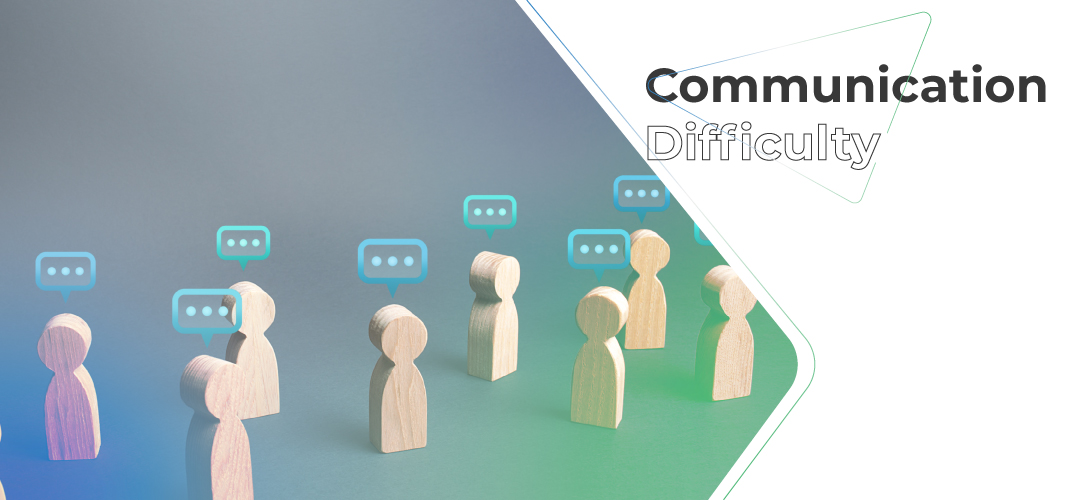Cara Mengatasi Kesulitan Berkomunikasi di Dalam Tim

Komunikasi merupakan salah satu elemen penting dalam bekerja, terutama saat berada di dalam sebuah tim. Seseorang akan melakukan negosiasi, memberikan feedback, atau bahkan memberikan berita buruk dan cara melakukannya bukanlah hal yang mudah.
Sering kali terjadi kesalahpahaman atau hal-hal tidak menyenangkan saat Anda berkomunikasi dengan orang lain. Kadangkala percakapan biasa dapat bereskalasi menjadi sebuah debat panas. Hal ini mungkin sering Anda temui ketika membicarakan hal-hal yang berkaitan dengan budget perusahaan, timeline suatu proyek, sumber daya, dan sebagainya.
Apa yang Membuat Komunikasi Menjadi Sulit?
Terdapat banyak faktor yang mempengaruhi dinamika komunikasi dalam sebuah tim. Beberapa faktor seperti budaya, bahasa, latar belakang bidang pendidikan, maupun nilai-nilai yang dianut dapat menjadi faktor penentu. Topik percakapan juga menjadi faktor penentu, terlebih ketika terdapat dua opini atau pendapat yang berlawanan.
Manusia tidaklah rasional dan logis seperti yang kita pikirkan. Ketika manusia menjadi sangat emosional, biasanya kemampuan untuk berpikir jernih dan mengambil keputusan secara rasional akan hilang. Pada praktiknya, sering kali emosi kita telah muncul bahkan sebelum percakapan dimulai.
Jika tidak dapat mengatur emosi dengan efektif, hal ini akan berdampak pada permasalahan yang tidak kunjung diselesaikan dan menjadi ticking bomb.
Cara Mengatasi Kesulitan Berkomunikasi
Gangguan komunikasi cukup berisiko dalam bisnis, terutama di skala perusahaan karena dapat menghambat kinerja tim dan berdampak pada kinerja bisnis secara umum. Hal-hal di atas dapat dihadapi dengan empat tips di bawah ini agar komunikasi tim Anda semakin efektif.
1. Bangun Kesadaran Diri
Langkah pertama untuk dapat memahami dinamika komunikasi di sebuah tim adalah dengan kesadaran diri. Kesadaran diri dapat membantu Anda dalam mengidentifikasi kesulitan-kesulitan apa saja yang timbul ketika tim berkomunikasi satu sama lain.
Ambil waktu sejenak untuk mengevaluasi percakapan sulit atau emosional yang pernah atau sedang terjadi. Lakukan identifikasi terkait situasi yang membuat Anda atau tim sulit berkomunikasi. Jika memungkinkan, hindari topik yang dapat memicu percakapan lebih emosional dan perhatikan akhir percakapan.
2. Persiapkan Diri Sebelum Memulai Percakapan
Sisihkan beberapa menit dari waktu Anda sebelum memulai percakapan atau rapat penting untuk mempersiapkan diri Anda. Gunakan waktu yang tersedia untuk berpikir secara matang apa tujuan percakapan? Bagaimana Anda melihat masalah yang akan didiskusikan dalam rapat? Apa yang Anda harapkan dari hasil percakapan ini?
Pertanyaan reflektif tersebut dapat digunakan untuk mempersiapkan diri Anda agar membuat percakapan lebih terarah. Selain itu, siapkan beberapa data, fakta, atau contoh-contoh konkrit yang ingin Anda sampaikan ke tim atau kolega Anda.
Dengan cara ini, Anda dapat memahami lebih baik perspektif lawan bicara Anda dan apa yang mereka inginkan. Langkah-langkah ini akan membuat Anda lebih peka dan fokus pada isi percakapan dan kecil kemungkinannya Anda akan bereaksi secara emosional.
3. Ubah Pola Pikir dengan Memahami Lebih Dulu
Saat seseorang memulai percakapan dengan tujuan agar Anda dipahami terlebih dahulu, efektivitas percakapan akan menjadi sangat terbatas. Ubah pola pikir menjadi lebih terbuka dengan hal-hal baru dan keingintahuan akan apa yang diinginkan oleh lawan bicara. Hal ini dapat dilakukan dengan melempar pertanyaan terbuka dan dengarkan dengan seksama jawaban yang dilontarkan.
Percakapan sebaiknya bersifat kolaboratif dan dua arah. Gunakan kesempatan ini untuk berdiskusi dengan komprehensif tentang masalah yang dihadapi bersama, sebelum langsung menggunakan penilaian Anda sendiri untuk membuat kesimpulan. Berkomunikasi ketika seluruh audiens Anda sedang duduk juga dapat menciptakan suasana diskusi yang lebih tenang daripada ketika berdiri.
Ketika kesempatan Anda hadir untuk memberikan perspektif, bicaralah dengan jujur. Gunakan kesempatan ini untuk berbicara dengan tenang, tidak menuduh atau meremehkan lawan bicara Anda, agar percakapan tidak menjadi konfrontatif dan konfliktual.
4. Bersikap Responsif, Bukan Reaktif
Selalu sadari dan atur emosi Anda ketika berkomunikasi dengan tim. Terkadang, Anda tidak sadar dengan apa yang rasakan, emosi-emosi negatif dapat mengambil alih diri Anda. Hal ini lebih sulit untuk dilakukan ketika audiens atau lawan bicara Anda mencoba untuk menuduh atau meremehkan Anda.
Ada hal-hal yang secara wajar memang membuat suasana menjadi tidak nyaman. Apabila hal ini terjadi, cobalah untuk diam sebentar. Atur nafas Anda menjadi lebih dalam dan lambat untuk memperlambat detak jantung dan tetap dapat terhubung dengan sisi rasional otak Anda.
Tujuan utama dalam berkomunikasi adalah untuk merespon dengan penuh kesadaran, daripada bersikap secara reaktif ketika terprovokasi. Sedikit jeda dan diam dapat menjadi langkah yang kuat, lima detik sekalipun dapat terasa seperti lima tahun.
Mengakomodasi kebutuhan komunikasi di dalam sebuah tim, cakupan pembelajaran dalam program Self-Leadership memungkinkan para manajer untuk menjadi komunikasi dalam pekerjaan serta hubungan dengan orang lain secara harmonis.
Program ini juga memprioritaskan pentingnya aspek hubungan antar manusia yang berkaitan dengan tugas seorang supervisor dan keterampilan interpersonal yang dibutuhkan. Dengan begitu, komunikasi di dalam tim dapat terjalin dengan harmonis sesuai pencapaian tujuan dalam organisasi.